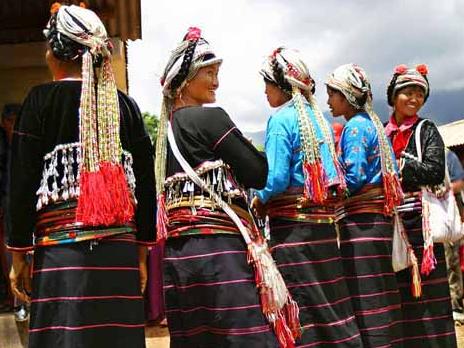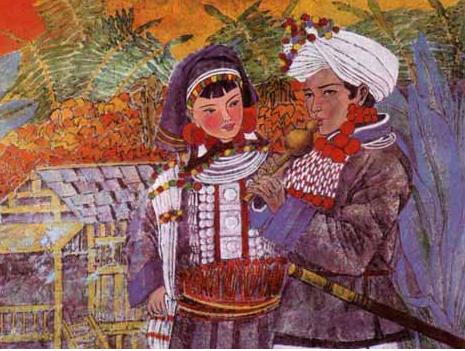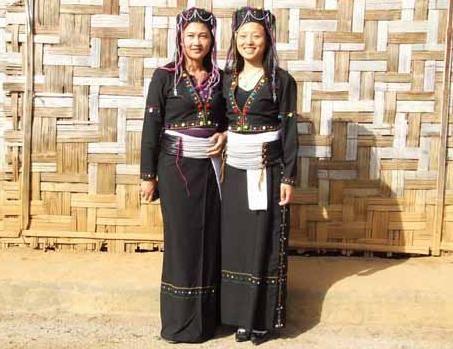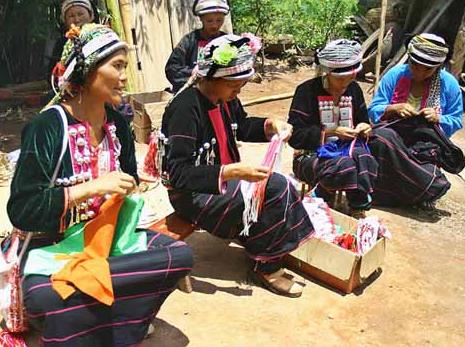
With a population of 17,935, the Deang ethnic minority lives exclusively in Yunnan Province and primarily in Luxi and Zhenkang Counties, along with Dai, Jingpo, and Wa ethnic minorities.
Language:
Their language is a branch of Mon-Khmer group of the Austro-Asiatic phylum. They have no traditional written language, so some of people use the written Chinese language along with that of the Dai and Jingpo languages.

The Deang people are skilled craftsmen, Silversmiths cast bracelets, fasteners, necklace, and tobacco pipes; women can also spin, dye and weaving cloth, with bright Deang characteristics – simple but delicate.
Food and Food Culture:
The Deang ethnic minority's staple food is rice, supplemented with corn, wheat and legume. They like to grow tea and to drink dense tea, which won them fame as 'old tea peasants', - they take great pride in their unique tea culture. When they visit relatives, propose marriage, welcome friends, and even when they ask for forgiveness, they will offer tea to show their regard. Another way of enjoying tea is to chew a kind of wet tea which helps cool in scorching summer.

Religion:
Influenced by the Dai ethnic minority, Deang people are faithful to Hinayana, a sect of Buddhism. Boys of less than 10 years old are sent to the temples to become monks, learning sutras. Most of them are secularized after several years, with only few promoted as Buddha who are highly esteemed as both educated and knowledgeable. Meanwhile, they also worship the original gods, such as Dragon King, God of Mountain, God of Land, etc.

Similar to the Dai ethnic minority, the Deang people also treat the Water-splashing, Door-opening and Door-closing Festivals as ceremonial days.
The Water-splashing Festival is held mid cycle of the fourth lunar month, with a duration of three to five days. On that grand day, all the people rally in the temples, listen to sutras and clean the statue of Buddha with the purest water. After, while singing and dancing, they splash water to each other which is the ritual way to give greetings. They are quite adept at Wushu, this is also an entertainment. As this is a very polite minority, in their families, the juniors will clean the feet of their seniors.
The Door-opening and Door-closing Festivals are also related to Buddhism. From the fifteenth day of the ninth month according to the Dai calendar, to the fifteenth day of the last month, the 'Buddha' will not go out and walk in temples; disciples will supply them with food, flowers, and money. Only after the Door opening Festival will they return to their regular way of life.





